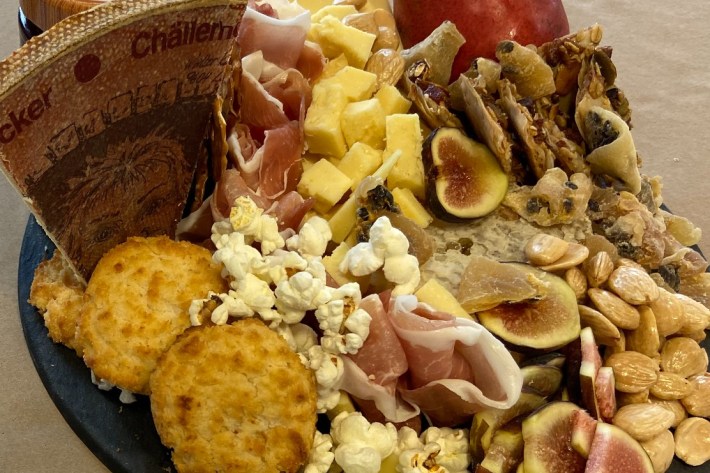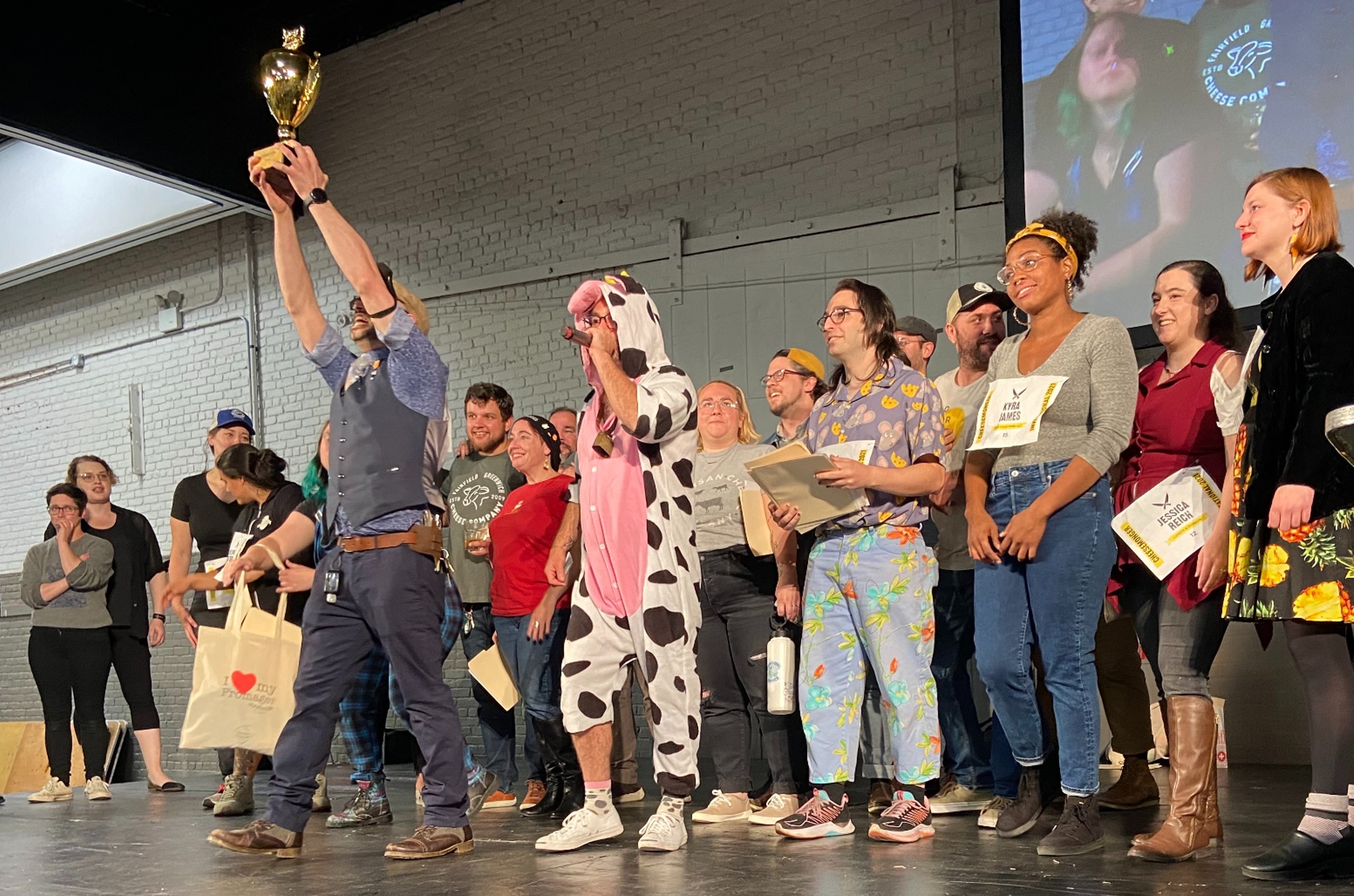When Jessica Reich graduated from art school, she imagined a creative career teaching visual arts or ceramics. But today, her medium isn’t paint or clay. It’s cheese.
Reich, a cheesemonger at Lunds & Byerlys in Maple Grove, was Minnesota’s only competitor at this year’s Cheesemonger Invitational, the national cheese salesmanship tournament that took place this month in Brooklyn. Until three years ago, when Reich began training behind the cheese counter, she jokes, she didn’t know cheese came in forms other than blocks in the grocery store fridge. But once she started shadowing experts and tasting as much as possible, she quickly fell in love.
“Cheese is such a connection between different people, cultures, history, science—it's really just everything all in one, and you get to talk about it and learn new things,” Reich says. “And then that connection between you and the customer and the cheese, and watching people's eyes light up when you find them a new cheese and they absolutely love it. It's the best part of my job.”
Before the public portion of this year’s Cheesemonger Invitational began on Friday, October 1, the 22 competitors underwent a gauntlet of qualifying challenges including a multiple-choice quiz and blind aroma and taste tests. They also had to compose a “perfect bite,” beverage pairing, and slate board highlighting a cheese they’d been randomly assigned about a month beforehand. Once crowds showed up in the afternoon, there was the unexpectedly high-octane finale: Five competitors were named finalists and invited on stage for six more rounds of timed challenges, from precise cutting to wrapping to trivia, set to loud techno-reggae and dancehall music.
The irreverent energy of the Cheesemonger Invitational went all the way to the top. The event was MC’d by Mr. Moo, aka artisan cheese bigwig Adam Moskowitz in a full-body cow costume. Moskowitz runs the cheese importation and distribution businesses Larkin Cold Storage and Columbia Cheese, and he’s the one who started the Cheesemonger Invitational about ten years ago.
With mic in-hand and cowbell on-neck, he led the couple-hundred-person crowd in chants of “Moo! Baa! Maa!” the de facto slogan of the competition. And before and after the spectacle on stage, attendees could enjoy unlimited samples from cheese producers around the world, snacks like grilled cheese sandwiches and fondue, and a farm-themed bounce house (which I jumped in, for journalistic research purposes).
Ultimately, Reich didn’t make the finals, which she said she saw coming. “People were doing crazy shit,” she says. “I have to up my game next time.”

In one of the final rounds, the five finalists had one minute to describe their favorite cheese, which Moskowitz (excuse me—Mr. Moo) joked is just about the most frustrating question you can ask a cheesemonger. So naturally, because Reich wasn’t on stage, I had to ask afterwards.
“What is my favorite cheese? Oh, rude! How dare you!” she says, laughing. Her top picks change all the time, but she lists Fromager d'Affinois brie with garlic and herb and La Tur, a creamy Italian robiola-style cheese made with a blend of cow’s, goat’s, and sheep’s milk. “They're just so delicate and unctuous,” she says. “I could take a bath in that and be happy.”
The Cheesemonger Invitational was cancelled last year due to Covid-19, which meant mongers and producers missed the opportunity to meet and learn from one another. The pandemic was disastrous for cheese producers, just as it was for almost everyone in the global food system: Many cheese makers have had to cut production, sell herds of animals, or pivot to new business models. At Nettle Meadow, a cheese company and animal sanctuary in upstate New York, sales dropped by about 65% in the first week of the pandemic.
“Cheesemongers are really central for us, and that's why, during this long and slow year and a half, we've tried to reach out to as many as we can,” Nettle Meadow owner Sheila Flanagan, a Macalester College graduate, said at the event. “I don't think enough can be said about the economics, because I really think it could be the difference between survival, flourishing, and just a slow demise.”
She commended the grocery stores and cheese shops, especially in the Twin Cities, that invest in hiring and training cheese counter staff. A few months into the pandemic, she held a Zoom training with all the cheesemongers at Kowalski’s, which she said many retail chains might not be willing to devote time or resources to host. Lunds & Byerlys took Reich and other mongers on a cheese tour in Wisconsin a few years ago, in addition to paying her full-time for a three-month apprenticeship under Certified Cheese Professionals, a status awarded by the American Cheese Society.
To Reich, this level of commitment and investment is emblematic of the broader culture in the American artisan cheese community, which was on display in full force at the Cheesemonger Invitational.
“Cheese people are my people,” she says. “You will never meet anybody more generous. You will never meet anybody more kind and open-minded. All the mongers have bonded. This is like a bonding experience. You put the shop away, and we're just people who love cheese.”
Now, a few weeks after the invitational, Reich is back at her home cheese counter and said the event—both the competition and education components—validated how taking better care of the cheese and her customers can go hand-in-hand.
“It takes a little bit more time and effort,” she says, “but it's definitely worth it to be able to support the cows, the farmers, the families that produce the milk and the cheese, the creamery, and everything in between.”






